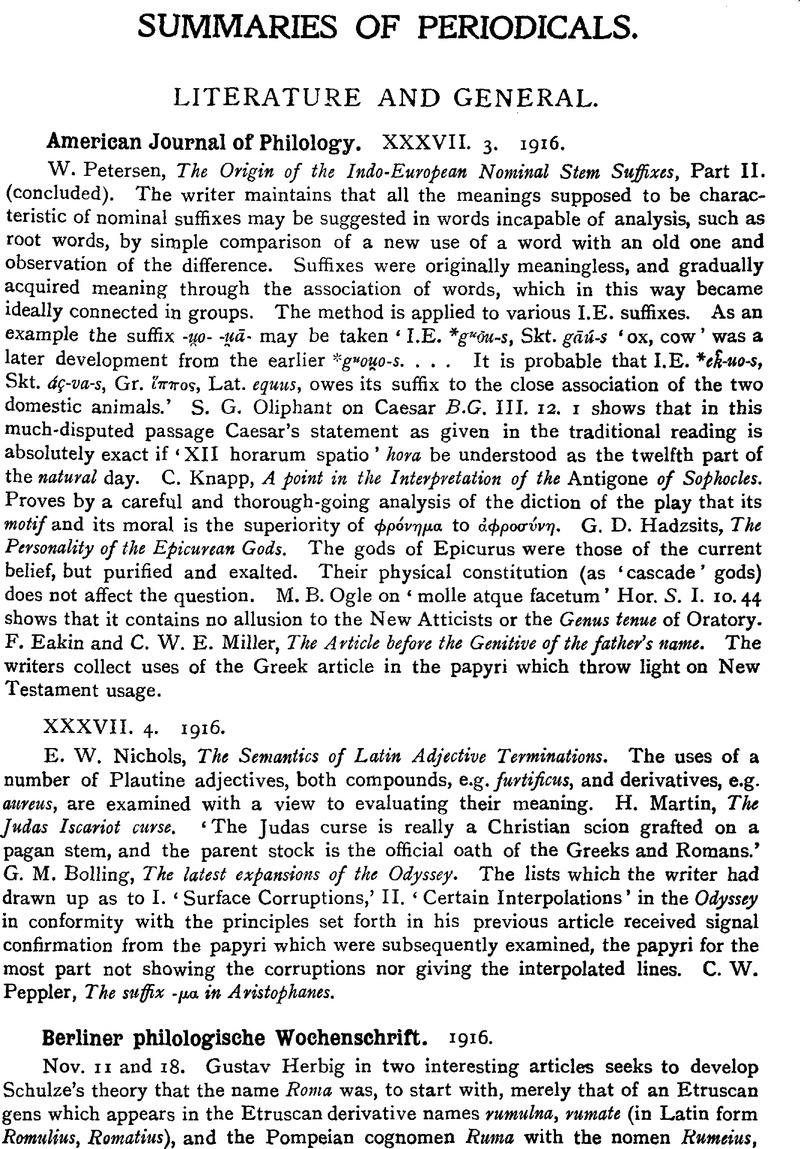No CrossRef data available.
Article contents
Literature and General
Published online by Cambridge University Press: 11 February 2009
Abstract

- Type
- Summaries of Periodicals
- Information
- Copyright
- Copyright © The Classical Association 1917
References
page 108 note 1 Discussed by ProfessorConway, R. S. in the Classical Review XX. (1906), p. 411CrossRefGoogle Scholar.
page 108 note 2 Professor Conway writes on this subject: ‘I cannot see that Herbig has added anything to justify Schulze's assumption (discussed as stated in the previous note). If Herbig's view of the origin of rūma is correct, the vowel of the personal name was originally ū (or eu), not ō, so that Schulze's derivation of Rōma from this personal name loses all probability. In Etruscan (but not in Latin) the two words would both become rūma, or at least be so written: and if the theory be that, though written alike, they were sounded differently, that is only an admission that even in Etruscan they were not identical.’


